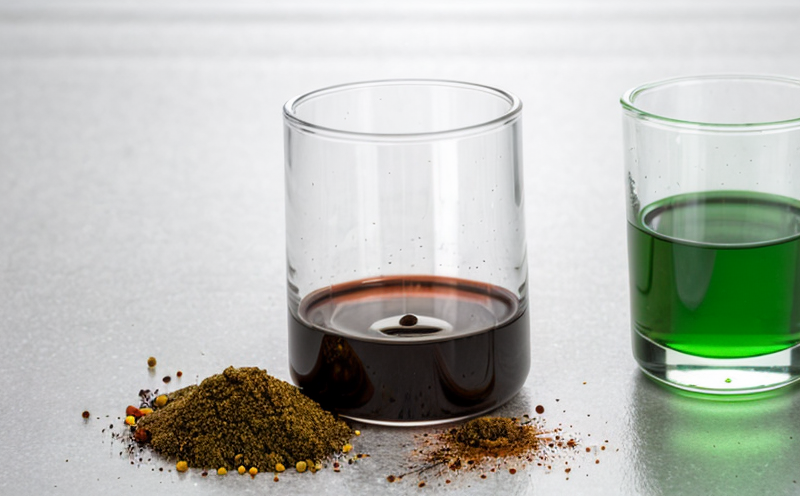ASTM E2598 Microbial Respiration Inhibition Test
The ASTM E2598 Microbial Respiration Inhibition Test is a pivotal method used to evaluate the potential impact of chemicals, substances, or compounds on microbial respiration. This test is crucial for industries involved in environmental testing, especially those dealing with water quality assessment and chemical pollution control. The test helps identify whether pollutants can inhibit the growth or activity of microorganisms, which is critical for understanding ecological impacts.
The methodology involves exposing a standardized microbial community to a sample containing the substance under investigation. The respiration rate of the microbes is then measured before and after exposure. A significant drop in respiration indicates an inhibition effect from the tested compound.
This test is particularly relevant in sectors such as pharmaceuticals, chemical manufacturing, and environmental consulting. By using ASTM E2598, these industries can ensure that their products or processes do not negatively impact the environment by inhibiting microbial activity, which could lead to imbalances in ecosystems.
The standard procedure for conducting this test is outlined in ASTM E2598-14(2021), ensuring consistency and reliability across different testing facilities. Compliance with these standards guarantees accurate results that can be trusted by regulatory bodies and clients alike.
Understanding the scope of this test requires knowledge of its key components: the microbial community used, the exposure conditions, and the measurement techniques for respiration rates. The microbial community is typically a mixture of common aquatic bacteria and fungi, chosen to reflect natural conditions as closely as possible. Exposure duration varies depending on the compound being tested but generally ranges from 48 hours up to one week.
The test apparatus includes specialized incubators capable of maintaining precise temperature controls necessary for optimal microbial growth. Additionally, spectrophotometers or other suitable equipment are used to measure changes in dissolved oxygen concentration as an indicator of respiration rates.
Applied Standards
| Standard Reference | Description |
|---|---|
| ASTM E2598-14(2021) | This standard specifies the procedure for conducting microbial respiration inhibition tests on environmental samples. |
| ISO 16400 | An international standard that provides guidelines for similar types of bioassays but focuses more broadly on biological effects testing. |
Customer Impact and Satisfaction
The ASTM E2598 Microbial Respiration Inhibition Test has been widely adopted by environmental consultants, regulatory agencies, and chemical manufacturers. Its ability to provide reliable data on the biodegradability of substances ensures compliance with increasingly stringent environmental regulations.
Clients appreciate the detailed reports generated from this testing process, which not only meet regulatory requirements but also offer insights into potential risks associated with new products or processes. This information is invaluable for product development and quality assurance initiatives aimed at minimizing ecological harm.
Feedback from customers highlights the importance of accurate results provided by this test method. The consistent application of ASTM E2598 across various laboratories ensures that data can be compared effectively, enhancing trust between stakeholders involved in environmental assessments.
Environmental and Sustainability Contributions
- Promotes sustainable product design by identifying potential negative impacts early in the development cycle.
- Aids regulatory compliance through precise measurement of biodegradability and toxicity levels.
- Supports ecosystem health by minimizing the introduction of harmful substances into aquatic environments.





